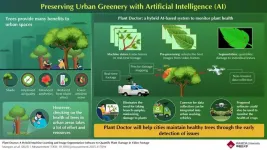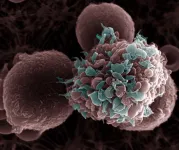Researchers from Florida Atlantic University’s Schmidt College of Medicine, and other distinguished collaborators who have led major trials of aspirin in primary prevention, have published their perspectives, “Aspirin in Primary Prevention: Undue Reliance on an Uninformative Trial Led to Misinformed Clinical Guidelines,” in Clinical Trials, the official journal of the Society for Clinical Trials.
The authors emphasize that best practices for the design, conduct, analysis and interpretation of randomized controlled trials should adhere to rigorous statistical principles. Failure to follow these principles can lead to conclusions inconsistent with the totality of evidence and inappropriate recommendations made by guideline committees. They believe that both the AHA/ACC Task Force and the U.S. Preventive Services Task Force were unduly influenced by the uninformative, not null, results of the Aspirin in Reducing Events in the Elderly (ASPREE) trial. Specifically, this trial did not provide reliable evidence that aspirin showed no benefit in the age groups they enrolled.
“The reliable evidence indicates that, to do the most good for the most patients in primary prevention of heart attacks and strokes, health care providers should make individual clinical judgments about prescribing aspirin on a case-by-case basis and based on benefit-to-risk not just age alone,” said Charles H. Hennekens, M.D., FACPM, co-author and the first Sir Richard Doll Professor of Medicine and Preventive Medicine, Schmidt College of Medicine. “Further, it seems counterintuitive among patients taking aspirin long term to stop it just because a birth milestone is reached. Finally, absence of evidence does not equate to evidence of absence of effect.”
The authors stress that patients should consult their primary care provider about whether they are candidates for aspirin, as providers have the most knowledge of all the benefits and risks for each of their individual patients. In brief, health providers are equipped to balance the benefits to each patient of clot prevention against their individual bleeding risks. Thus, whether to prescribe aspirin should be an individual clinical judgment.
“Health care providers also should be aware that all patients suffering from an acute heart attack should receive 325 milligrams of regular aspirin promptly, and daily thereafter, to reduce their death rate as well as subsequent risks of heart attacks and strokes,” said Hennekens. “In addition, health care providers and patients should remain cognizant that among survivors of prior heart attacks or occlusive strokes, aspirin should be prescribed long-term unless there is a specific contraindication.”
The authors highlight the growing burden of cardiovascular disease, stressing the need for broader lifestyle changes and effective as well as affordable drug therapies for primary prevention. These changes include quitting smoking, weight loss, increased physical activity, and using statins and other medications to manage blood pressure. With respect to costs, aspirin is a particularly attractive option.
“While patient preference is always important to consider in decision-making, this assumes even greater relevance among patients in whom the absolute benefits and risks of aspirin are similar,” said Hennekens. “Patient preference may include consideration of whether the prevention of a first heart attack or stroke is more important consideration to them than their risk of a significant gastrointestinal bleed.”
The authors also note that the absolute risk of a cerebral bleed without, as well as with aspirin, is too low to be of clinical relevance for the vast majority of patients. In the U.S. and most developed countries, the authors say that individual clinical judgments by health care providers about prescribing aspirin in primary prevention may affect a relatively large proportion of their patients. For example, metabolic syndrome, a constellation of overweight and obesity, hypertension, high cholesterol and insulin resistance, a precursor to diabetes mellitus, affects about 40% of Americans 40 years of age and older and is increasing globally. The high risks of patients with metabolic syndrome for a first heart attack and stroke may approach those of patients with a prior event.
“Guidelines for aspirin in primary prevention do not seem to be justified,” said Hennekens. “As is generally the case, the primary care provider has the most complete knowledge about the overall benefits and risks for each patient and should make individual clinical decisions.”
According to the U.S. Centers for Disease Control and Prevention, more than 859,000 Americans die of heart attacks or stroke every year, which account for more than 1 in 3 of all U.S. deaths. These common and serious diseases take a very large economic toll, costing $213.8 billion each year to the health care system and $137.4 billion in lost productivity from premature death alone.
FAU collaborated with several distinguished academicians from the University of Wisconsin School of Medicine and Public Health, as well as the Harvard Medical School and Massachusetts General-Brigham Hospital.
Co-authors are Janet Wittes, Ph.D., an affiliate professor of biostatistics, FAU Department of Population Health; David L. DeMets, Ph.D., the first Max Halperin Professor and Chair Emeritus of Biostatistics and Informatics; KyungMann Kim, Ph.D., a professor of biostatistics and informatics; and Dennis G. Maki, M.D., FACP, all with the University of Wisconsin School of Medicine and Public Health; J. Michael Gaziano, M.D., a professor of medicine; Marc A. Pfeffer, M.D., Ph.D., FACC, Distinguished Dzau Professor of Medicine; and Sarah K. Wood, M.D., director of the Harvard Macy Institute, all at the Harvard Medical School, with Gaziano and Pfeffer also affiliated with Massachusetts General-Brigham Hospital; and Panagiota Kitsantas, Ph.D., professor of biostatistics and epidemiology and chair of the Department of Health Administration and Policy, George Mason College of Public Health.
Hennekens was the first to discover that aspirin prevents a first heart attack in men in the U.S. Physician’s Health Study and prevents a first stroke in women in the Women’s Health Study. He was the U.S. principal investigator on the worldwide Second International Study of Infarct Survival (ISIS02), which demonstrated the lifesaving benefits of aspirin when given within 24 hours of onset of symptoms of a heart attack as well as among long-term survivors of prior occlusive events affecting their heart, brain or peripheral arteries. Gaziano was the principal investigator of the Aspirin to Reduce Risks of Initial Vascular Events (ARRIVE) trial, one of the four major trials recently reported in the peer reviewed literature.
- FAU -
About the Charles E. Schmidt College of Medicine:
Florida Atlantic University’s Charles E. Schmidt College of Medicine is one of approximately 159 accredited medical schools in the U.S. The college was launched in 2010, when the Florida Board of Governors made a landmark decision authorizing FAU to award the M.D. degree. After receiving approval from the Florida legislature and the governor, it became the 134th allopathic medical school in North America. With more than 170 full and part-time faculty and more than 1,300 affiliate faculty, the college matriculates 80 medical students each year and has been nationally recognized for its innovative curriculum. The college offers M.S. (thesis and non-thesis) and Ph.D. programs in biomedical science, along with a certificate in genomics and precision medicine. Taught by top researchers, the curriculum combines cutting-edge coursework with hands-on learning, preparing graduates for careers in medicine, research, industry, and academia. To further Florida Atlantic’s commitment to increase much needed medical residency positions in Palm Beach County and to ensure that the region will continue to have an adequate and well-trained physician workforce, the FAU Charles E. Schmidt College of Medicine Consortium for Graduate Medical Education (GME) was formed in fall 2011 with five leading hospitals in Palm Beach County. The consortium currently has five Accreditation Council for Graduate Medical Education (ACGME) accredited residencies including internal medicine, surgery, emergency medicine, psychiatry, and neurology, and five fellowships in cardiology, hospice and palliative care, geriatrics, vascular surgery, and pulmonary disease and critical care medicine. The college also manages the Florida Atlantic University Medical Group, offering comprehensive primary care, and the Marcus Institute of Integrative Health specializes in integrative pain management, precision therapies, and mental health. A 2023 partnership with Broward Health expands academic medicine, clinical training, and research opportunities.
About Florida Atlantic University:
Florida Atlantic University, established in 1961, officially opened its doors in 1964 as the fifth public university in Florida. Today, Florida Atlantic serves more than 30,000 undergraduate and graduate students across six campuses located along the Southeast Florida coast. In recent years, the University has doubled its research expenditures and outpaced its peers in student achievement rates. Through the coexistence of access and excellence, Florida Atlantic embodies an innovative model where traditional achievement gaps vanish. Florida Atlantic is designated as a Hispanic-serving institution, ranked as a top public university by U.S. News & World Report, and holds the designation of “R1: Very High Research Spending and Doctorate Production” by the Carnegie Classification of Institutions of Higher Education. Florida Atlantic shares this status with less than 5% of the nearly 4,000 universities in the United States. For more information, visit www.fau.edu.
END







